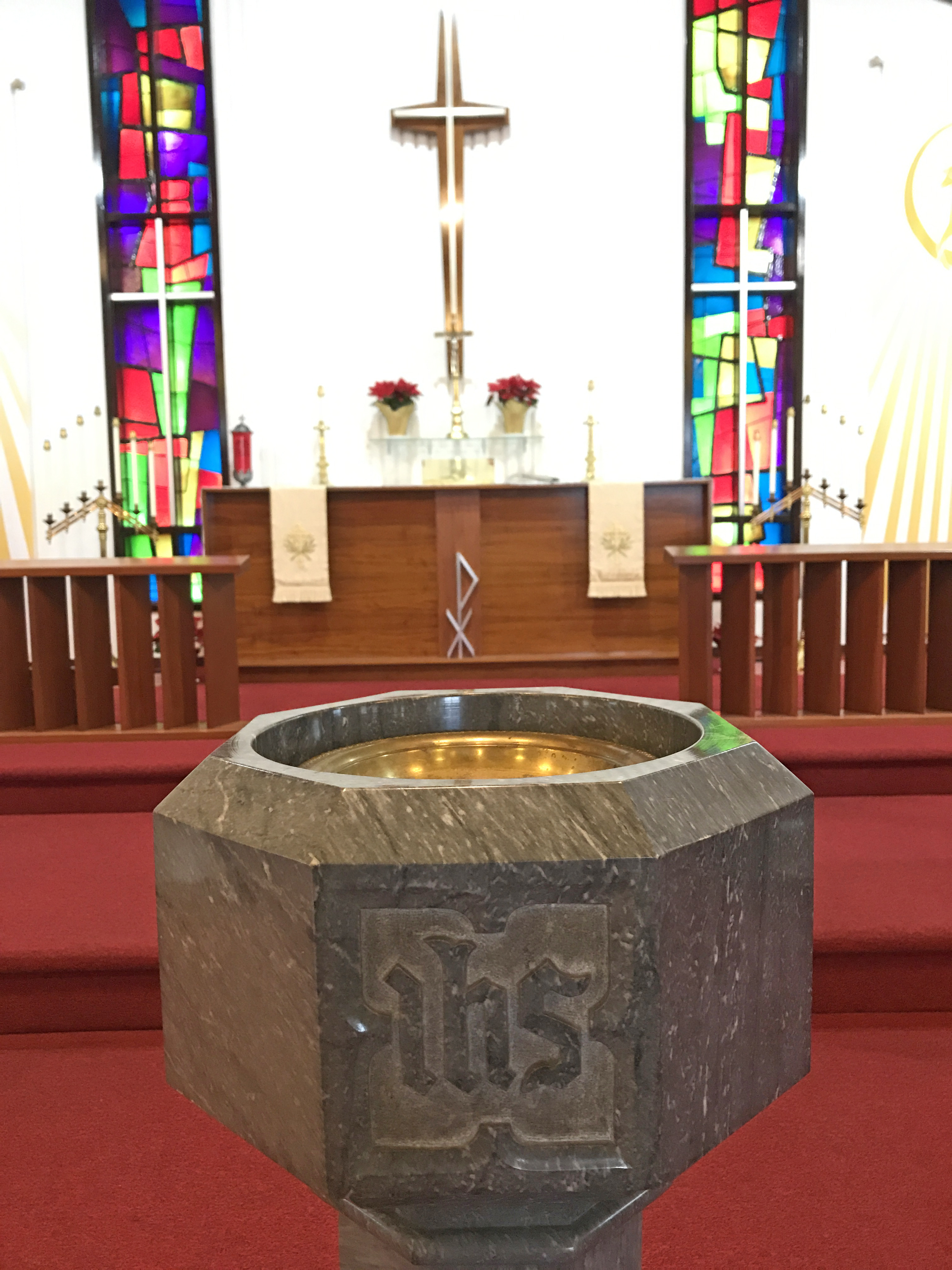Ash Wednesday – Wednesday 14 February A✠D 2024
✠ Psalmody: Psalm 69:16,1;31:2b–3;1, 5, 9, 16;57:1a, 3a;103:10;79:8, 9
✠ Lection: Joel 2:12–19;2 Peter 1:2–11;St. Matthew 6:16-21
In the Name of the Father and of the ✠ Son and of the Holy Spirit. Amen.
Hypocrisy is very rewarding, especially if you’re good at it. To be a hypocrite is to be aware, to acknowledge, to desire something that is good and to do what is necessary to obtain it. In and of itself, such a tactic in life isn’t necessarily bad. If we see godly virtue as that which is good, then it is wise to pursue it, to do what is necessary to gain that virtue. But the problem with the rewards that the flesh seeks, that spiritual hypocrisy seeks to gain, the problem with those treasures, is that they are not really treasures. They’re worse than fool’s gold, three-inch eyelashes, and fake meat.
Are you a hypocrite for receiving ashes upon your forehead? Possibly, but more than likely not. You definitely could be, because the temptation is real for hypocrisy to creep in regarding ashes, but there are important differences between being tempted by the corruption of edifying practices and by deceptively misusing them wholesale.
You have not received ashes upon your forehead this evening so that you may be seen by others. Our intent is good; to remember rightly why we make this our practice by which to enter into Lent. Embrace the true meaning. Pursue it. Repent if your heart wants to boast in your ashes or use them to appear sufficiently holy in the eyes of other walking dust bags, or as Luther would put it, bags of worms, because the right reason that you received the ashes is so that you would be reminded of the truth that you heard when they were imposed, “Remember that thou art dust, and unto dust thou shalt return.” Those ashes are to remind you of the weight of the sin that desires oh so strongly to cling to you. Because we still bear the sinful flesh, it must return to the dust from whence it came. Therefore, we retain the ancient custom of putting ashes on our heads as we mourn our sinful mortality and the physical demise that awaits us all. But there is more than just ash on your head. There is ash, the sign of death, placed upon you in the sign of another death; that of the cross to remind you of crucifixion; not crucifixion of countless thieves, robbers, and murderers that the Romans executed in this way over many years, but to remind you of this one, the crucifixion, the sacrifice of the Lamb of God upon a particular cross on a particular Friday to pay for the sins of a whole particular existence of sinful people.
This precious and mighty Lamb bore all things, believed all things, hoped all things, endured all things as He was sent by His Father to accomplish all things. Thus, He went up to Jerusalem, and throughout these 40 days, we shall again make our way there with Him by examining ourselves as He bids us do for the sake of our souls.
Before our dear Lord made His way up to that mountain upon which He died, He took much time to teach, to warn, to admonish, to encourage all who would have ears to hear. One such trove of teaching comes in His Sermon on the Mount, a portion of St. Matthew’s account from which we get tonight’s Gospel where Jesus tells us that the treasures that hypocrisy seeks, and even gains, are quite short-lived, if not outright detrimental to faith. From the majestically rich text surrounding tonight’s reading, we get not only the Lord’s Prayer, but also the three-fold approach to heightened repentance during Lent through an increase of giving alms, prayer, and fasting. Jesus says, Take heed that ye do not your alms before men, to be seen of them…Therefore when thou doest thine alms…do not do as the hypocrites do. And when thou prayest, thou shalt not be as the hypocrites are. And finally, in our portion, When you fast, do not be like the hypocrites. With this repetition, shall we say then that the Church is full of hypocrites? No, we shall not, because there are too many true Christians in the Church. And because those many true Christians have righteous desires to love, serve, and please God while still being tempted by many sins, including that which looks to others for validation, for approval, for praise instead of to God. This is what lies at the root of hypocrisy; the value of man’s opinion more than God’s. The irony is that from man, such things must be earned, whereas God freely gives true treasures by grace.
Jesus’ warning isn’t about true Christians but to them. The warning-label-worthy hypocrites are the scribes, Pharisees, and Sadducees who would seek to appear godly, not so that God would be glorified by their true piety, but that they would be glorified through false. They would give alms in boastful manner and intent, so that not only their left hand would know what their right was doing, but so would those of other people in order that their praise may be directed toward the alms-giver. They would do their charitable deeds like giving to the poor or serving them in order to appear that they were doing something commendable, but the only intent was for that worthless reward; that they may be seen to be doing it, when what the heart of the Lord desired was that the neighbor was loved and served. They would stand on the corners of the streets to pray not so that God would hear their words, but man and thus be exalted in their eyes. They would fast with disfigured faces and sad countenance not so that their self-denial and discipline of the flesh could be seen by the Lord, but so that man would see them and be amazed at their holiness. And in pursuing such things, they have their reward and it’s never as good as the hypocrite thinks.
To combat this and to show us the better way, our dear Lord uses a teaching technique that Luther picked up himself and made use of in his explanations of the 10 Commandments. What does this mean? Don’t do this bad thing, because it is bad; instead do this good thing, because it is good. Don’t murder your neighbor, whether by heart or by hand, because is bad, for your neighbor, indeed, but it is also bad for you. Instead help and support him in every physical need as the one by whom your Father in heaven seeks to do just that, because it is good.Don’t kneel, don’t make the sign of the cross, don’t veil, don’t bow, don’t go to church on Ash Wednesday, don’t give, don’t pray, don’t fast, don’t do any of those things so that you may appear to men to be doing them. Instead, do what is good when you have discovered that it is good, seeking always to have your Father in mind. This means you may have to battle the temptation of your flesh in the middle of Divine Service. It is neither each other’s place to judge in the use of salutary ceremonies nor is it our place to worry about it. How do you appear to God? Value your brothers and sisters and seek to understand why we differently do what we do, but the pleasure and approval that we are all best to seek is not that of each other, but of the One around Whom we gather together.
The summarized principle is this: For where your treasure is, there your heart will be also. In other words, if you seek to treasure something, then your heart will follow where you point it. For the hypocrite, this means that the reward sought is the reward gained and it is earthly, where moth and rust destroy and where thieves break in and steal. It isn’t good. It doesn’t last. Neither try to live up to burdensome expectations that you put on yourselves by what you believe others want of you, nor carry out your life, especially your Christian life, so as to be seen by others as having it together simply by outward motions. That is not why Christ wants us to do good things. The value of the treasure of alms giving, of prayer, of fasting, and much more, is placed there by God. Trust that all your needed measuring up is in Christ and your measure cannot be any higher in the sight of God than it is in the perfect life of Him into Whom you are baptized. In your baptism, you were marked with the sign of the cross upon your forehead and upon your heart as one redeemed by Christ the crucified. With that truth to build upon, to live in, to rest in, then all the things that you do with Him in mind become treasures from His hand that you will possess forever. Yes, rewards can be gained by hypocrisy, but they are only burdensome and fake. True rewards, eternal rewards, are found in the godly practices carried out by the repentant heart that trusts in Christ for full pardon of sins, exalts Him above all people, and trusts its standing before God on His account.
In ✠ Jesus’ Name. Amen.












Comments are closed, but trackbacks and pingbacks are open.